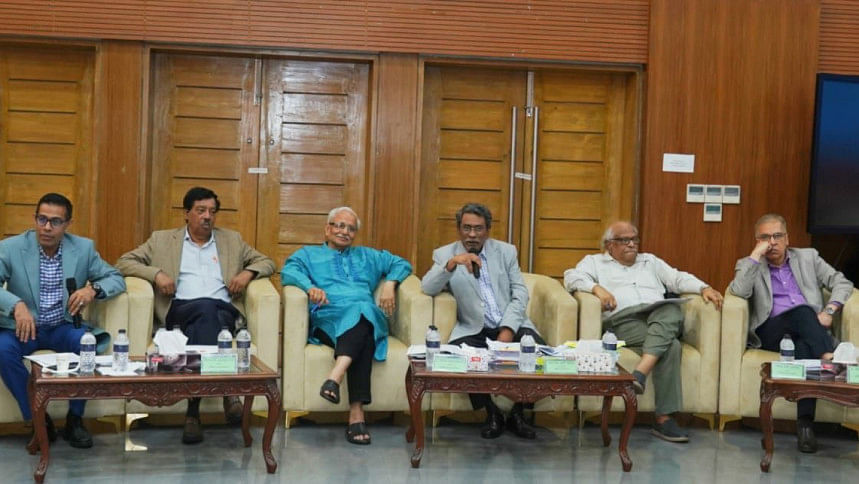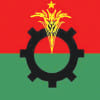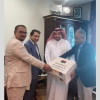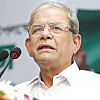Consensus talks: No breakthrough yet on PM’s tenure

Political parties, except the BNP and two others, yesterday agreed that an individual cannot be the prime minister for over 10 years.
Yesterday was the 5th day of the second round of talks between the National Consensus Commission and 30 political parties at the Foreign Service Academy.
BNP Standing Committee member Salahuddin Ahmed said the BNP would not yet support a 10-year cap, unless two issues were settled first: the formation of the proposed National Constitutional Council and the method for appointing members to the upper house in a bicameral parliament.
These issues, along with the role of the upper house, should be discussed together, not separately, he said.
"Rather than debating the number of terms [an individual can be the PM], we can instead discuss the total number of years one can serve," he added.
The council, according to a reform proposal, would oversee appointments to institutions like the Election Commission and Anti-Corruption Commission. Most parties support this proposal, but the BNP and allies say that such a body would undermine the elected government's authority.
Disagreement among parties also remains over the upper house, with most parties, except the BNP, favouring proportional representation.
After Salahuddin said this at the televised meeting, there was a 15-minute break in the broadcast for private consultation among parties.
Wrapping up the day's talks, National Consensus Commission Vice-Chairman Professor Ali Riaz said that after lengthy deliberations, most participants agreed that no individual should serve as prime minister for more than 10 years. However, full consensus was not reached due to reservations from the BNP, National Democratic Movement, and Bangladesh Liberal Democratic Party.
He added that the parties requested two days for policy-level consultation before the talks resume.
Jamaat Nayeb-e-Ameer Syed Abdullah Mohammad Taher told reporters that his party supported the proposed 10-year cap.
Tasnim Jara, senior joint member secretary of the National Citizen Party, said, "If there is consensus on a 10-year cap… we are willing to consider it."
She added that constitutional bodies should be non-partisan.
Islami Andolan Bangladesh spokesperson Gazi Ataur Rahman said "If the constitution includes democracy, it must also include full faith in Allah."
Communist Party of Bangladesh General Secretary Ruhin Hossain Prince said, "The values of 1972 must remain unchanged. We are open to additions, but not to replacing the foundational values. There is no scope for compromise on this. Some say these principles are partisan, but only those who oppose independence oppose these values."
Gono Odhikar Parishad leader Nurul Haque Nur said, "We began the day with the agreement that no one should serve [as the PM] more than two terms. But a few parties vetoed that. Then the discussion was about the number of years, with most supporting a 10-year cap. But still, not all agreed.
"At some point, the commission must act as the referee. Otherwise, these discussions will go on until Keyamat."
Ganosamhati Andolon leader Zonayed Saki said, "Despite differences, we are getting closer to a common ground. That's a positive sign."
On constitutional principles, Salahuddin said the reform commission's initial proposal was to abolish articles 8, 9, 10, and 12 and suggest alternatives.
After BNP's suggestions, the inclusion of equality, human dignity, social justice, and democracy as principles are being discussed.
Jamaat leader Taher said his party supported having equality, justice, democracy, and human dignity as principles.
He added that Bismillahir Rahmanir Rahim and faith in Almighty Allah must remain in the preamble.

 For all latest news, follow The Daily Star's Google News channel.
For all latest news, follow The Daily Star's Google News channel. 









Comments